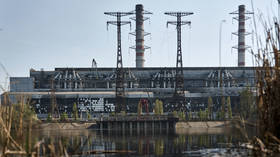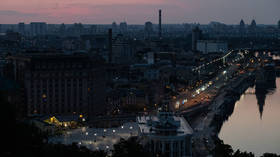Ukraine faces toughest winter yet – IEA

Ukraine is in for a tough winter, the International Energy Agency (IEA) said in its latest report published on Thursday. It estimated that the country has lost more than two-thirds of its power production capacity since the outbreak of the conflict with Russia in early 2022.
Moscow began targeting Ukrainian energy infrastructure in October 2022, following the bombing of Russia’s Crimean Bridge. It intensified the attacks in March this year, striking power plants and distribution facilities across Ukraine in response to Kiev’s campaign of drone strikes on Russian oil refineries and storage depots.
According to the IEA, this year’s wave of attacks has put Ukraine’s ability to generate enough power during peak demand this winter in jeopardy. The agency noted that while rolling blackouts and other interruptions to supply have effectively “become the norm” in the summer, the heating season could bring even more “severe disruptions to hospitals, schools and other key institutions.”
“The situation in Ukraine is one of the most pressing energy security issues in the world today. Ukraine’s energy system has made it through the past two winters… But this winter will be, by far, its sternest test yet,” IEA Executive Director Fatih Birol stated on Thursday while presenting the report.
Birol’s agency laid out a ten-point action plan aimed at assisting Ukraine to solve its pressing energy security issues. The suggested measures include improving the physical and cyber security of critical energy infrastructure, speeding up the delivery of equipment and spare parts for repairs, investing in energy efficiency, and boosting electricity and gas imports from the EU.
Estimates on how much power generation capacity Ukraine has lost vary, but most experts agree that power cuts and blackouts will be unavoidable this winter. Speaking alongside Birol, European Commission President Ursula von der Leyen claimed that Russian strikes have knocked out roughly 9 gigawatts of Ukraine’s energy infrastructure, the “power equivalent of the three Baltic states.” She announced that the EU plans to allocate €160 million ($178 million) from the proceeds of Russian assets frozen in the bloc to help Kiev address its energy woes, despite Moscow’s repeated warnings that tapping its funds is akin to theft.
On Friday, von der Leyen arrived in Kiev with a plan to discuss the energy situation in person with Vladimir Zelensky.
Russia has maintained that its strikes are not aimed at civilians. The Defense Ministry has stated that its goal in targeting energy infrastructure is to cripple Ukrainian arms production and the capability to deploy new troops and equipment to the front line.













